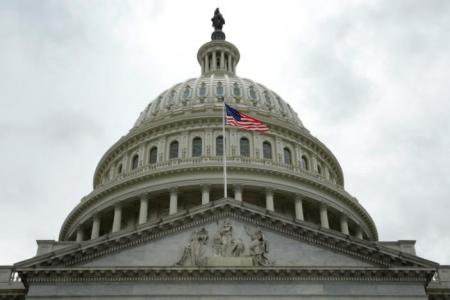3,000 Christian, Muslim, Jewish Faith Leaders Stand Against 'Immoral' Obamacare Repeal Bill

A group of 3,000 Jewish, Christian, Muslim, Sikh, and Buddhist faith leaders have signed onto a letter against what they describe as the "immoral" Graham-Cassidy Republican healthcare bill, which looks unlikely to gain enough votes to pass the Senate.
"The Graham-Cassidy proposal would cause millions to lose health coverage, and people experiencing vulnerability, sickness, and poverty would be hit the hardest. Over the next decade, ACA funding would be eliminated, Medicaid would be gutted, and critical protections, such as for people with preexisting conditions, could be eliminated in certain states," the interfaith leaders said in the letter on Monday, calling the bill "immoral."
"Graham-Cassidy would end Medicaid as we know it by instituting a per capita cap and shifting billions of dollars onto states. The result would be nothing short of reducing access to healthcare, raising premiums, and eliminating protections for millions of Americans," they contested.
Some of those who signed the letter included Sr. Simone Campbell of the Network Lobby for Catholic Social Justice; Fr. Charles Currie of the Jesuit Digital Network, and Jim Winkler of the National Council of Churches.
Fox News reported on Monday that Sen. Susan Collins, R-Maine, became the latest Republican to say she will vote against the legislation, joining Sens. John McCain, Rand Paul and Ted Cruz, who all indicated they will not vote in favor of the Obamacare repeal.
Ben Shapiro, editor of The Daily Wire, noted in a column on Monday that Collins, the most liberal Republican in the senate, said the bill was "as deeply flawed as its previous iterations," citing a Congressional Budget Office score that found that millions of Americans would supposedly lose their health insurance coverage (the vast majority through voluntarily leaving their Obamacare programs)."
The Graham-Cassidy legislation represented one of the last efforts to get a Republican healthcare bill passed with a 51-vote majority, as after Sept. 30, a 60 vote majority would be required for such efforts.
CNN reports that this means Republicans would need help from Democrats, who have been united in their opposition when it comes to repealing Obamacare, which passed with only Democrat votes in 2010.
President Donald Trump has pointed out, however, that Republican senators previously all agreed on the need to replace Obamacare.
"I hope Republican Senators will vote for Graham-Cassidy and fulfill their promise to Repeal & Replace ObamaCare. Money direct to States," Trump tweeted last week.
"Rand Paul is a friend of mine but he is such a negative force when it comes to fixing healthcare," he added. "Graham-Cassidy Bill is GREAT! Ends Ocare!"
Paul, for his own part, has explained that he wants to back legislation that goes further into repealing Obamacare.
"#GrahamCassidy is amnesty for Obamacare. It keeps it, it does not repeal it," he said in a Twitter response. "I will keep working with the President for real repeal."
Many pro-life leaders have been strongly critical of Obamacare, warning that it funds Planned Parenthood with over half a billion dollars a year.
After another Republican health care bill failed to get enough support in July, Live Action President and founder Lila Rose told The Christian Post: "Because of the Senate's failure to act, the American people will be forced to continue giving over a half billion dollars a year to Planned Parenthood so it can keep its doors open and continue to kill 900 innocent preborn children every day."
Rose added: "The pro-life community and millions of Americans will continue to work toward the day when abortion facilities are no longer propped up by the taxpayers, when killing their own children is no longer offered to women as some kind of personal empowerment, and when the rights of innocent preborn children are fully protected by the law."
The editors of National Review said last week that the Graham-Cassidy bill "is still much better than Obamacare."
They added, "It abolishes the individual and employer mandates, caps per capita spending on Medicaid, blocks federal funds from going to insurance plans that cover abortion, and lets interested states attain freedom from some of Obamacare's regulations. Some of those states could use that freedom to create markets in which people outside of Medicare, Medicaid, and employer-based coverage would finally be enabled to buy cheap, renewable catastrophic-insurance policies."





















